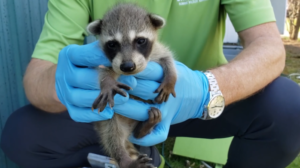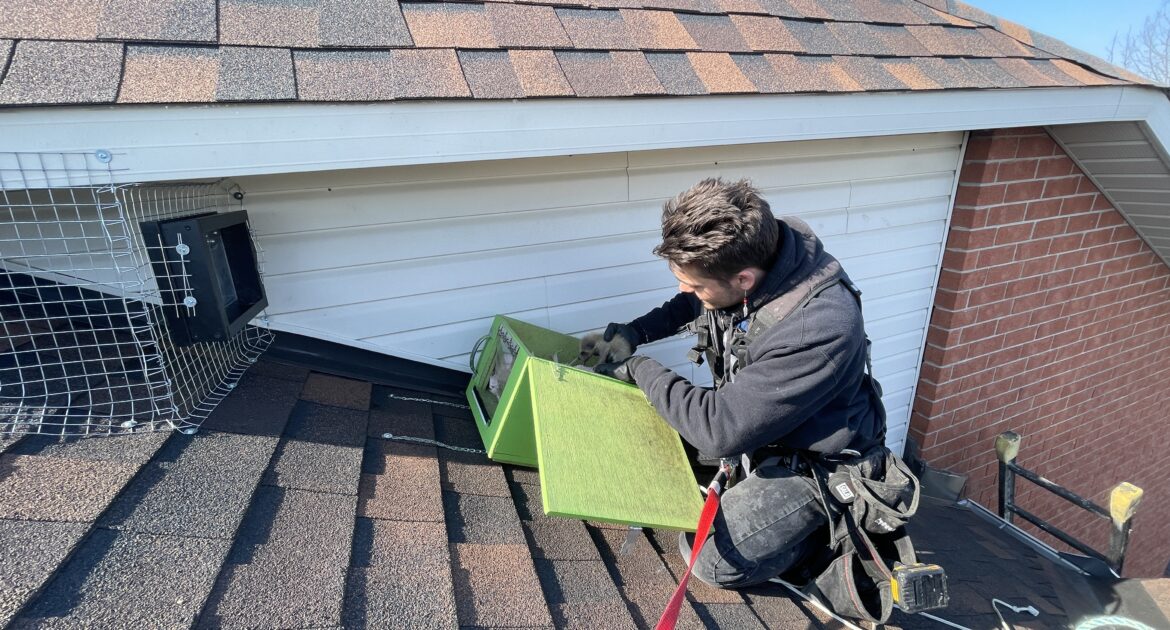Commonly known as trash pandas or bandits, raccoons are often seen as a cute nuisance in neighbourhoods and cities. While people may have playful names for the critters, they can be pretty destructive, especially in the summer, requiring raccoon removal in Durham.
Raccoons often make a mess of garbage collection, but they can also be quite intrusive when they want to be. While typically solitary creatures, they may nest near populated spaces if they find easy access to food and water sources.
Time of year tends to play a crucial role in raccoon behaviour. The animal is most active in summer, searching for new den sites and feeding grounds. You must protect your property.
4 Reasons Summer Raccoon Removal Is Important
Summertime is an active season for most wildlife. While it’s a common misconception that raccoons hibernate, they are not true hibernators. That said, the animals do store up extra body fat during the spring and summer so they can stay in their dens and sleep through much of the colder months.
Because of the animal’s wintertime activity, homeowners will see less of it during the winter. Since the cold is not a particularly busy time for raccoons, wildlife control is a little less dire. As the weather warms and regular activity resumes, humane animal control is more necessary, and there are a few reasons for the extra precautions.
1. Warmer Weather
When the cold weather subsists and raccoons begin actively foraging again, they can travel up to 20 miles away to find new dens and feeding sites. Having slept most of the winter, the animals will need to restore fat levels in their bodies and begin preparing for the next cold season.
Also, besides foraging, as the weather warms, raccoons will begin the mating season. Procreation is a priority among all animal species. Pregnant raccoons will spend early spring locating secure nesting sites that allow them easy access to food and water.
2. Adult Raccoons
In researching how to get rid of raccoons, you will likely come across information about population fluctuations throughout the year. Summer represents a time of significant growth for raccoons and many other species because of mating seasons and maturation.
Raccoons mate in early spring, so they have babies by June. Those babies mature by mid to late summer, noticeably increasing raccoon activity in specific areas throughout Canada. Because of the population increase and the number of new raccoons searching for adequate shelter for the coming winter, wildlife control and removal is crucial.
3. Foraging
In late summer, raccoons become hyper-focused on foraging. They must gain weight and store enough food to last the entire winter season.
While raccoons may still be somewhat active in winter, they prefer to remain in their dens. Despite their solitary behaviour, the animals may even share dens to maintain warmth and ensure survival.
Humans often barbeque and spend a great deal of time outdoors in the late summer and early fall, having cookouts and cherishing the last of the warm weather. The increased activity can draw the animals out, especially with the enticing smells of cookouts, increasing the need for caution and animal control.
4. Population Increase
The population increase throughout the summer makes raccoon removal services even more important than at other times during the year. All the new raccoons are looking for homes to call their own. Wildlife control services can ensure those homes are not inside your house or on your property.
How To Keep Raccoons Away This Summer
Are you worried about raccoons nesting on your property, or are you concerned about recent increases in raccoon activity in your neighbourhood? Contact Skedaddle Humane Wildlife Control and schedule a property inspection to calm your nerves.





